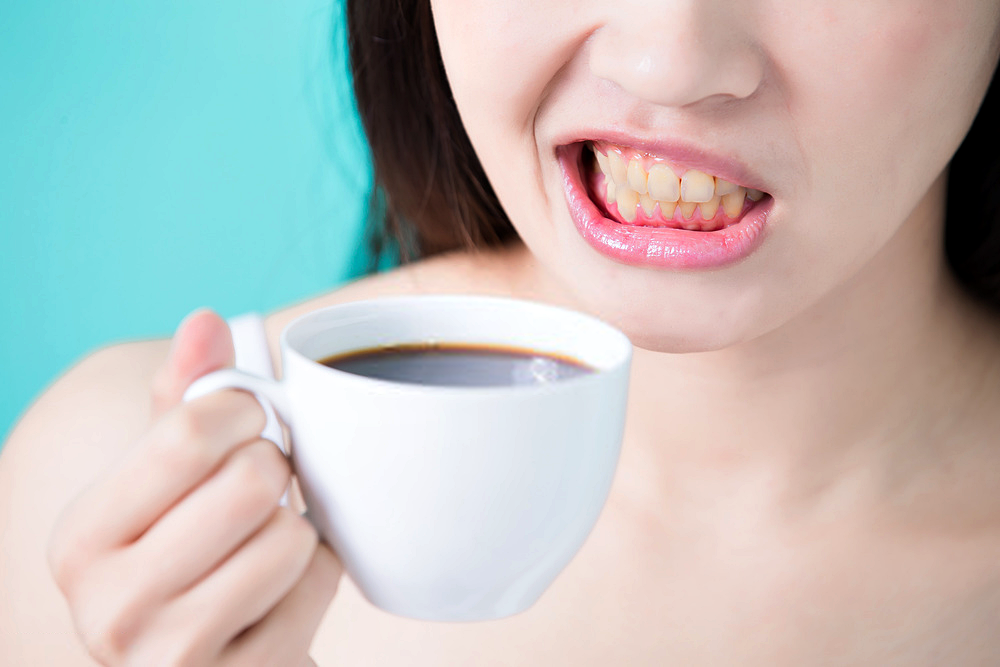Yellow teeth can have many causes, the most common ones you can find out here! We also explain what can be done about yellow teeth.
Yellow Teeth: The Most Common Causes
Discoloured teeth often have several causes, which can be genetically determined, but also caused by a lack of care or eating habits:
- Genes: The genes are responsible for the colour of our teeth. This can also be a rather yellowish tone. In addition, it often happens that the enamel, which is actually white, decomposes with age and becomes thinner. Thus the dentin shines through more and more, which in turn has a yellow colour.
- Nutrition: Various foods can cause discoloration of teeth. This can cause particles of colour to penetrate the enamel. This applies, for example, to the frequent consumption of black tea, red wine, coffee, cola or even ketchup and dark berries. In addition, vinegar and citrus fruits also contribute to the decomposition of the enamel and make it more transparent.
Medicines/hygiene products: Mouth rinses containing the active ingredient chlorhexidine can cause discoloration of the teeth. This also applies to medicines, such as certain antibiotics, if taken during the development of the teeth. Neuroleptics, high blood pressure medications and antihistamines can also be responsible for discolouring teeth. - Smoking: The consumption of tobacco also contributes to discolored teeth. Smoking can also cause bad breath, tooth decay and cancer.
- Irregular oral hygiene: If teeth are not brushed sufficiently, plaque and tartar can occur. Tartar makes the teeth look grey.
- Incorrect tooth brushing: If teeth are brushed with too much pressure, enamel becomes thinner, which in turn promotes the yellowish tartar to show through. The same negative effect can also occur with a toothpaste with coarse abrasives.
Yellow Teeth: Treatment
Depending on the cause of the yellow teeth, there are different treatment approaches. We have listed basic measures and possibilities here:
- Thorough oral hygiene is essential to avoid yellow teeth. Brushing your teeth twice a day is compulsory! In addition, colouring food and drinks should not be consumed excessively.
- In general, you should consult your dentist – a doctor will clarify whether these are genetic or external causes or even whether there is a disease behind them. Then the possibility of a bleaching procedure (bleaching), professional tooth cleaning or the use of veneers can be discussed – although regular professional tooth cleaning is generally always recommended.
- If you want to use whitening toothpastes, you should also consult your dentist. Although these creams can minimise externally added discolouration, they could also damage the enamel if they are used frequently and thus have the opposite effect on the teeth.
- Bleaching agents from drugstores should also be used with caution: Incorrect dosage or fundamentally wrong application can cause damage.
- Home remedies for teeth whitening, such as baking soda or lemon juice, can make the teeth lighter, but they can also attack the enamel.

